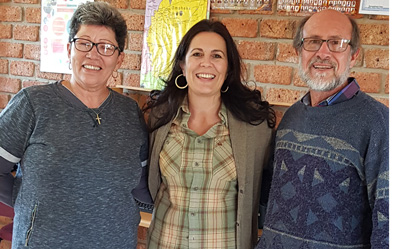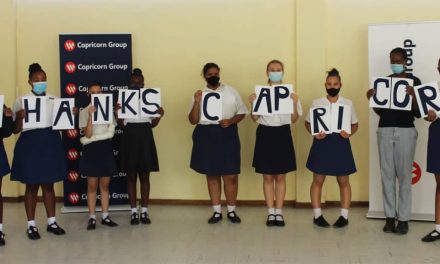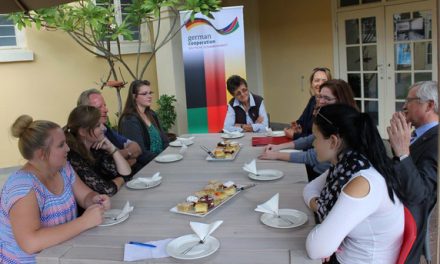
More technical training in Otjiwarongo

Manager inventor Peter Arndt demonstrating the popular dry-process otjitoilet. This dry sanitation system does not require a connection to a central sewerage reticulation network leading to the faster development of informal settlements.
After the first two years of training masons and assistants, the Clay House Project expanded it activities by helping self-builders in Orwetoveni or offering subsidized houses with the help of donor money. The clay vaults and domes proofed to be too risky in the high rainfall years and the organization Grupo Sofonias brought the technology of micro concrete roofing tiles that can be produced on site. Grupo Sofonias through its CHP manager Peter Arndt, reduced the cost of nearly everything, while taking care not to compromise the quality of the houses for low-income families.
After some years it was difficult to obtain enough erven to start building, even in the informal settlements. The reticulation of sewage lines takes long and is expensive. To address this delay, Arndt developed a dry sanitation system that allows for quicker development of residential suburbs. The CHP also took over the role of servicing these toilets for the municipality. With more and more hands-on experience and feedback from users, the design was refined and the Urine Diversion toilet pot was developed and produced in Otjiwarongo, using local materials and skilled labour. Only the steel for the toilet shelter had to be imported.The training of young adults will now be taken over by the Young Africa Namibia Trust as it is Arndt’s intention to retire from the Otjitoilet production. The CHP facilities are leased to Young Africa to develop an innovative model of vocational training through apprenticeships. The first intake of apprentice solar technicians in January 2015 is based on the successful training offered by Young Africa in Walvis Bay. All apprentices, from all the various workshops and trades have to attend life skills training offered by Young Africa to help them when applying for jobs or starting their own business. These include communication, applied maths, HIV/Aids awareness, decision making and other skills.
Founder of the Clay House Project, Wiebke Volkmann expressed her gratitude to the project’s supporters saying “We wishes to thank all our partners who have brought us to where we are today, including the municipality of Otjiwarongo, all past and present trustees, Grupos Sofonias, Peter Arndt of Eco Solutions CC, all donors who funded our activities, all staff who ever worked with the CHP and the community of Orwetoveni for their welcome.”












































